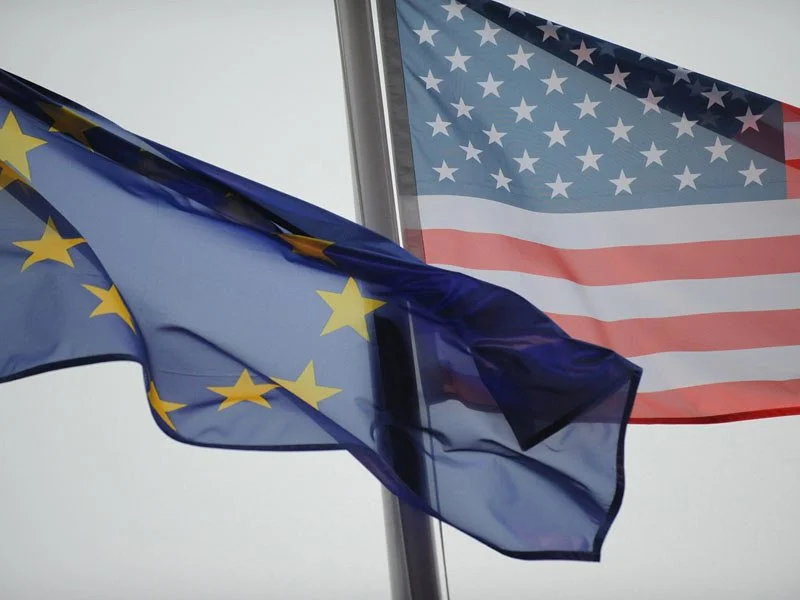The E.U. Counters U.S. Tariffs
The E.U. and the United States, traditionally allies, are entering a new phase in their relationship defined by economic reaction and transaction (Flickr).
President Trump’s new sweeping tariffs have upended traditional relationships with the European Union, triggering a swift reaction from member nations.
In March, the United States placed a 25 percent tariff on all steel and aluminum imports to encourage more domestic steel and aluminum production, per the Washington Post. After a month of discussions between member nations, the E.U. reacted by passing 25 percent counter-tariffs on a range of U.S. goods in April, according to the Washington Post. These tariffs are expected to impact 23 billion dollars of goods imported from the United States, including soybeans, iron, steel, textiles, and ice cream. The E.U. has yet to react to any of the other tariffs from the United States, such as the most recent 20 percent duty on all E.U. exports.
Before implementing these tariffs, the E.U. had emphasized their willingness to negotiate with the White House. On April 7, trade ministers of member states met to deliberate on the organization’s next steps, per Reuters. Even though they would eventually move forward with the reactionary tariffs, many ministers initially expressed their desire to begin negotiations with the United States to end the tariffs. To kickstart these negotiations, E.U. officials such as Marcos Sefcovic, E.U. trade chief, suggested a “zero-for-zero” policy where zero tariffs were to be implemented between the United States and Europe. The proposal, however, was rejected by Elon Musk, according to Reuters.
In a shocking turn of events, President Trump posted on Truth Social on April 9 that he was pausing and lowering the tariffs for 90 days for all countries except for China, per The New York Times. This lowers the tariffs on the E.U. from 20 to 10 percent. The E.U. tariffs, which were supposed to go into effect April 15, now hang in the balance as the E.U. faces more time to potentially negotiate a deal and configure their response.
A key element of the E.U.’s strategy is to present a united front in the face of the tariffs. For example, according to The Economist, rather than waiting for the E.U. to negotiate as a group, Ursula von de Leyen, the President of the European Commission, called Robert Fico, the prime minister of Slovakia, after he discussed future trade relations with the Trump administration; Fico later reported that “she scolded me for half an hour, saying I was a complete idiot.” Furthermore, the prime minister of Spain, Pedro Sanchez, has emphasized the togetherness of the E.U., stating that the “E.U. will react with proportionality, unity, and … strength”, per The Economist. The challenge for the E.U. will be maintaining this unity.
Facing an opportunity to reorient global trade, the E.U.’s next moves will set the tone for future U.S.-relations.

